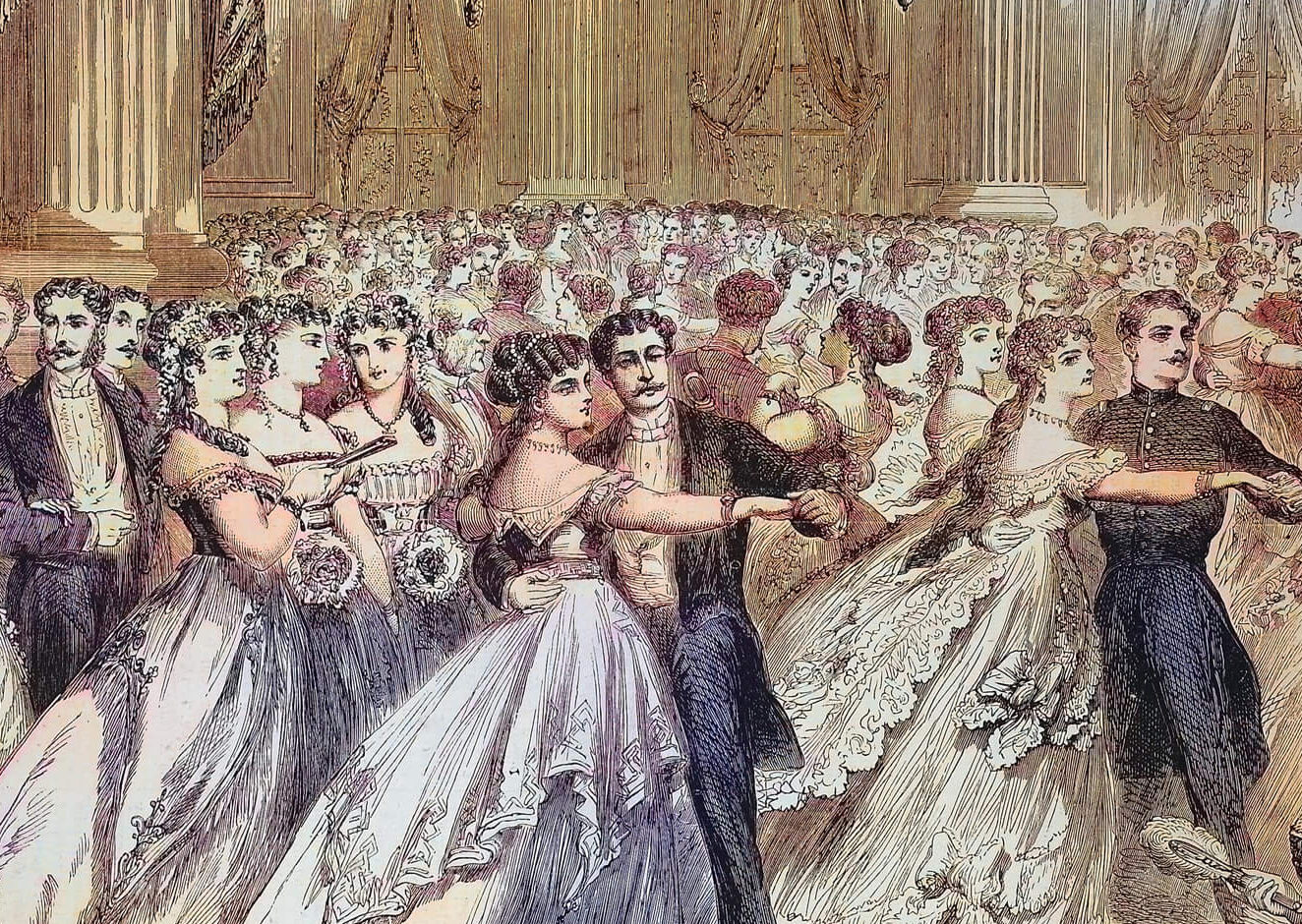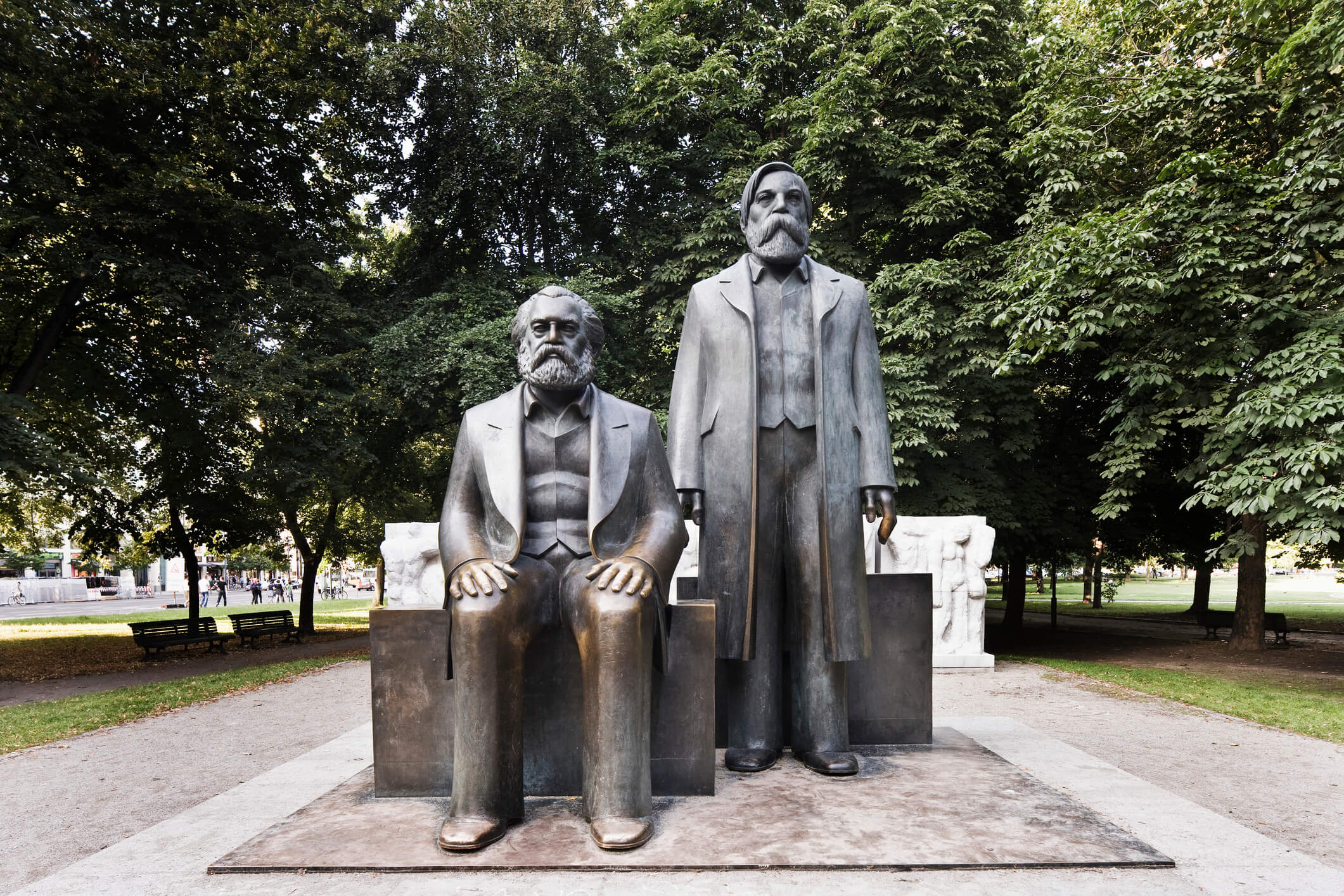In the spring of 1971, two rising stars of the conservative movement met at their weekly breakfast in the basement cafeteria of the U.S. Capitol. Twenty-eight-year-old Paul Weyrich was the press secretary of Senator Gordon Allott (R-CO); Edwin J. Feulner, Jr., almost thirty, was the administrative assistant to Congressman Phil Crane (R-IL). While sharing a conservative philosophy, the young men had far different backgrounds.
Feulner’s father was a successful Chicago businessman; Weyrich’s father stoked the furnace at a Catholic hospital in Racine, Wisconsin. Feulner had an MBA from the Wharton Business School; Weyrich attended but never graduated from the University of Wisconsin in Racine.
They differed considerably in personality, too. Feulner was always upbeat, the perennial optimist; Weyrich was ever skeptical, an ingrained pessimist.
But both were fed up with the go-along Republicans who seemed content with their minority status in Congress. Both were eager to advance a conservative agenda of less government, free enterprise, traditional American values, and a strong national defense.
Weyrich waved aloft a monograph from the American Enterprise Institute (AEI), a right-of-center think tank. The study carefully examined both sides of a controversial issue—the federal funding of a supersonic transport plane (the SST). The Senate had just voted 51-46 to halt government support of the SST, which some conservative hawks favored to maintain U.S. technological superiority over the Soviets. The AEI report arrived in Allott’s office after the Senate debate.
A puzzled Weyrich contacted William Baroody, Sr., AEI president and a member of his church. “Great study,” he said. “But why didn’t we get it sooner so we could use it in the debate?” Baroody explained: “We didn’t want to try to affect the outcome of the vote.” Unspoken was the admission that AEI didn’t want to be too “political” and jeopardize its tax-exempt status. For one of the few times in his life, Weyrich was speechless.
The two congressional aides decided that conservatives in Congress needed a think tank unafraid of trying to influence a policy debate. The venerable Brookings Institution, the most influential think tank in Washington, which had assisted presidents-elect John F. Kennedy and Jimmy Carter in their transitions, served as a model. Success did not come overnight, but in 1973, with the generous financial support of the Colorado businessman Joseph Coors, the Heritage Foundation was launched. Its first president: Paul Weyrich.
The pattern would be repeated often in the years ahead as Weyrich, a master political strategist, would note a critical gap in the conservative movement and take steps to fill it.
In the wake of Watergate and the badly weakened condition of the Republican Party, Weyrich resigned as Heritage president and formed the Committee for the Survival of a Free Congress. From the beginning, the committee raised money only for conservative candidates—so-called “modern” Republicans were not welcome. As conservatives became more organized in political action, however, the need for the committee diminished. Changing its name to the Free Congress Foundation in 1978, the organization emphasized an issue that deeply concerned Weyrich, a devout Catholic: the secular state of American culture, which shapes our politics.
A staunch supporter of federalism, Weyrich believed that conservatives should be more politically active in the state capitals. Following discussions with state office holders, Weyrich and other conservatives formed the American Legislative Exchange Council (ALEC). He served as the first director of ALEC from 1975 to 1978, laying the foundation for one of the most influential conservative groups in the country, responsible for the passage of dozens of conservative state laws.
Earlier it had surprised—and bothered—Weyrich that conservative members of the House and Senate did not meet on a regular basis to discuss tactics and strategy. House liberals had the Democratic Study Group, which generated legislation and policy papers. Conservatives had only the accommodationist research developed by regular Republicans. Liberal Republicans had formed the Wednesday Group in the early 1960s.
With the encouragement of Phil Crane, Weyrich and Feulner put together a plan using the Democratic Study Group as a model. In early 1973, House conservatives formed the Republican Steering Committee, which was renamed the Republican Study Committee after the 1974 elections. The committee became a major force in the House of Representatives, the Republican Party, and the Washington political community. On the Senate side, liberal Republicans could count on the Wednesday Club for research help, but conservatives were on their own at the time. Drawing on the experience of starting the Republican Study Committee, Weyrich and other Senate staffers organized the Senate Steering Committee, composed of the more conservative senators.
The political analyst Kevin Phillips was the first to use the phrase “the New Right” to describe the collective efforts of Richard Viguerie, Weyrich, Howard Phillips (no relation), and John “Terry” Dolan, the founders of a milestone development in the conservative movement. They wanted, Phillips wrote, “to build a new coalition reaching across to what elite conservatives still consider ‘the wrong side of the tracks.’” They were “a group of anti-establishment, middle-class political rebels more interested in issues like abortion, gun control, busing, ERA, quotas, bureaucracy, and the grassroots tax revolt than in capital gains taxation or natural gas deregulation.”
Given Weyrich’s deep concern about the pervasive power of culture in our politics, it was inevitable that the New Right would reach out to conservative Christians. Weyrich, a Melkite Catholic, and Howard Phillips, a Jew, persuaded Jerry Falwell, an ordained Baptist minister, to get into politics. Weyrich was giving a briefing to Falwell one day and remarked, “Out there is what you might call a moral majority. They are politically and socially conservative. If we could get these people active in politics there is no limit to what we could do.” Falwell was struck by the words “a moral majority.” “That’s the phrase I’ve been looking for,” he said, and thus the Moral Majority was born.
Television evangelists such as Falwell, Pat Robertson—who had started the Christian Broadcasting Network in the early 1960s—and the Dallas pastor Jim Robison reached a collective twenty million viewers each week. The Moral Majority and other Christian organizations became the Republican equivalent of what black voters have been to the Democrats, an indispensable part of a winning coalition.
In collaboration with Tim LaHaye, the evangelical minister and author of the bestselling Left Behind series of apocalyptic novels, and the direct mail guru Viguerie, Weyrich organized the Council for National Policy (CNP) in 1981. CNP was intended to be a policy network for the Christian Right and cultural conservatism. CNP members included Christian conservative leaders, New Right activists, Reagan administration officials, members of Congress, PAC leaders, and golden donors like the oil magnate Nelson Bunker Hunt and the Amway co-founder Richard DeVos.
Weyrich remembered the day he decided to stop waiting for some other conservative to lead. It was during the first Nixon administration. By mistake, he was invited to attend a meeting of liberals planning the enactment of an open-housing bill. Present were a White House official (appointed by Nixon but a liberal), a Washington newspaper columnist, an analyst from the Brookings Institution, representatives of black activist groups, and aides to a dozen senators.
“They planned their campaign in a very impressive way,” Weyrich later recalled. “The Senate aides committed their bosses to make statements and contact other senators. The White House official promised to track the administration’s position. The columnist said he would write a favorable column at the most opportune time. The Brookings man promised to publish a study in time to affect the debate. The blacks agreed to demonstrate at the right moment.” Weyrich continued, “I saw how easily it could be done and decided to try it myself.” The result was the launching of the Committee for the Survival of a Free Congress and a parade of other conservative initiatives.
The 1980s were regarded as golden years by most conservatives, but Weyrich saw missed opportunities as well as triumphs. In a 1990 address, Weyrich outlined a conservative/populist platform that included 1) a tax policy that guaranteed any full-time worker would have sufficient income to maintain an “acceptable standard of living”; 2) a welfare policy that empowered recipients to escape the culture of dependence; 3) an education policy that allowed parental choice in schools; 4) a right-to-life policy that declared openly that abortion was wrong; 5) a law-and-order policy that ensured justice for the accused, the victim, and society; 6) an anti-drug policy that raised the stakes for drug abusers and promoted widespread testing; and 7) a policy of expanded direct democracy, including state referenda, term limits for congressmen, shorter legislative sessions, and the “localization” of governmental functions. A conservative agenda, he said, will expose “the left-wing agenda” that is the product of “a fringe element hostile to our culture and our civilization.”
A decade later, in a public letter to the conservative movement, Weyrich came to a different conclusion. Gone was any spirit of optimism; missing was any reference to a “fringe” element. Instead, there was a cri de coeur by someone who had worked in the political vineyards all his life but who now confronted the fact that a majority of Americans did not share conservative premises.
“I no longer believe,” Weyrich admitted, “that there is a moral majority.” Having lost the culture war, he said, we must “look at ways to separate ourselves from the institutions that have been captured by the . . . enemies of our traditional culture.” He was not suggesting that “we all become Amish or move to Idaho” but to consider “what we can do to separate ourselves from this hostile culture” and to find places where we “can live godly, righteous and sober lives.”
“The question is not whether we should fight but how,” Weyrich said.
When he was accused of sounding not just a retreat but a withdrawal from the culture war, Weyrich issued a clarification. “The question is not whether we should fight but how,” he explained. Instead of relying on politics to retake the “decadent institutions of contemporary America,” he said, “we should separate from those institutions and build our own.” One example was the homeschooling movement, long a redoubt of conservative values.
Weyrich later admitted that he no longer believed in a moral majority because a majority of Americans did not support the impeachment of President Bill Clinton over the Monica Lewinsky affair, a defining moment for him. His pessimism was undoubtedly influenced by his increasingly poor health. In 1996, he was diagnosed with a spinal disorder resulting from a fall. Complications resulted in the below-knee amputation of both legs in 2005 and his confinement to a wheelchair.
Yet he soldiered on, chairing weekly luncheon meetings attended by members of Congress and cutting off windy speeches: “What is your solution, Congressman?” he would demand. Although suffering from chronic pain, he continued to serve as a deacon of his Melkite church, taking his cue from Saint Paul, determined to finish the race.
His early life had laid the foundation for his fascination with politics and his unswerving commitment to a conservative Christian philosophy. He was born in Racine, Wisconsin, on October 7, 1942. His father, Ignatius, an immigrant from Germany, fired the boilers at St. Mary’s Catholic Hospital in Racine for fifty years. His mother, whose parents were Norwegian, was a nurse at St. Mary’s. Paul grew up and was educated in a blue-collar neighborhood of Racine, located on Lake Michigan some sixty miles north of Chicago.
He had his first taste of politics at fifteen when he and a friend decided to fight the abandonment of a commuter rail line. The teenagers founded Transit Associates and began issuing news releases composed in Paul’s kitchen. The result was a banner headline in a Chicago newspaper: “Ten-Point Plan to Save North Shore.” By the time he was nineteen, he and another friend had “taken over” the local Republican Party.
An outstanding high school student, Weyrich entered the University of Wisconsin in Racine on a strict budget, earning his way by working part-time at radio station WLIP. After two years, he received an offer to work as news director at a new radio station in Kenosha, Wisconsin, just south of Racine. He told himself that he would go to the university part-time, but after marrying his sweetheart, Joyce Smigun, financial pressures increased dramatically with the birth of their first child. (They would have five children in all.) Reluctantly, he dropped out of school.
Over the next four years, Weyrich acquired a reputation as an exceptional political reporter while working for several radio stations as well as the Milwaukee Sentinel newspaper. After the 1964 election, he moved the family to Denver, Colorado, and joined the radio station KQXI as its news director. In 1966, he produced several radio documentaries, including one on the Republican senatorial candidate Gordon Allott. Two days after he won, the senator-elect invited Weyrich to visit his office. The young news director thought the politician was going to complain about something he had said on the air. Instead, Allott asked, “Have you ever thought of going to Washington?” For the next six years, Paul Weyrich was press secretary and assistant to Senator Allott and then special assistant to Senator Carl Curtis (R-NE). There followed nearly four decades of shaping the conservative movement.
On December 18, 2008, at the age of sixty-six, he died, leaving behind a phalanx of conservative organizations, although only one of them—the weekly Weyrich Lunch—bears his name. Deserving at least a full page in the history books, Paul Weyrich is usually given a footnote by liberal and even by conservative historians. There is as yet no biography, but his longtime associate Connie Marshner is writing one based in part on his private diary. There is little doubt that his candid judgments will make some conservative leaders uncomfortable. There is no Weyrich Award at the annual Conservative Political Action Conference, although both ALEC and Coalitions for America annually present a Weyrich Award, with recipients like Senator James Inhofe (R-OK). The Moral Majority is credited to the Reverend Jerry Falwell, and the New Right of the 1970s is consigned to the ash heap of history.
But within the ever-shifting world of politics, there is a resurgent interest in cultural conservatism and an acceptance of Andrew Breitbart’s axiom that politics is downstream from culture. When politicians and historians go searching for its roots, they will encounter the founder of more conservative organizations than anyone else: Paul Michael Weyrich, brilliant and blunt, a far-sighted political strategist who knew that the struggle for freedom and the search for a godly world are never-ending.















